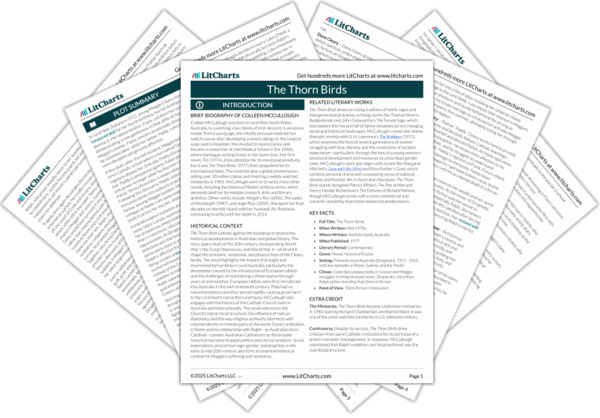Anne Mueller’s kindness provides Meggie with a brief refuge, offering the warmth and understanding that Luke withholds. Surrounded by care, Meggie experiences a glimpse of comfort, adapting to the humid climate and lighter clothing. But this kindness cannot replace what she truly craves—a genuine partnership. Luke’s absence becomes a constant reminder of her isolation. His obsession with work and saving money leaves her waiting for visits that never come, teaching her to expect disappointment. Gradually, she adjusts to life without him, but this adjustment is a form of emotional erosion.
